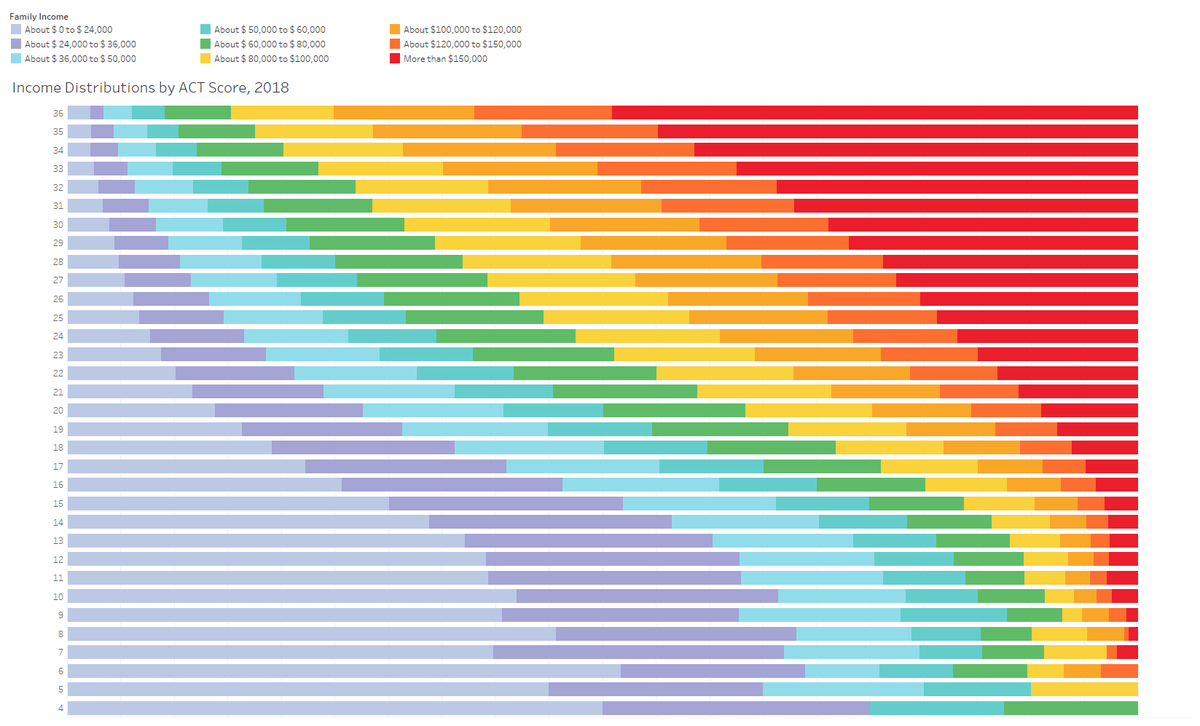
Thread: I note that people talking about the continuing drop in ACT scores seem to focus on a few things: Teaching and students.
Maybe that's fair. But maybe there is something else at work.
Maybe that's fair. But maybe there is something else at work.
Because this. ACT scores have been dropping for several years. Whatever is happening is not caused solely by the pandemic. 

What a lot of people don't realize is that test questions are tested well before they make it into an official exam. Selecting the right questions, in the right proportion of "hard, medium and easy" is a skill. And it's hard to master.
We have seen that since College Board ostensibly took test construction back from ETS and put it in house, scores have fluctuated pretty dramatically.
Read this, for instance, from the good folks at @CompassEduGroup who kick butt on test analysis compassprep.com/major-drop-in-…
Read this, for instance, from the good folks at @CompassEduGroup who kick butt on test analysis compassprep.com/major-drop-in-…
But we don't really question The Agencies, because relying on these tests is so embedded in our collective psyche. If scores are down, it must be problems with the kids taking the tests, right?
Right?
Right?
Everyone knows the last 18 months have been tough on kids. I have heard of a few who loved and preferred online learning, but regardless, it's a new modality, and students who have learned in traditional classrooms have had adjustment pains.
You would too.
You would too.
But how do we know it's the kids? And how can we account for--get ready--the fact that when scores go down, it's actually good for The Agencies?
Lower scores increase demands for testing.
Lower scores increase demands for testing.
Just ask the people in your state legislature if things like this don't make people demand more accountability of our schools, because the tests say kids aren't learning.
Do you see the pattern here?
Do you see the pattern here?
I'm not accusing anyone or any agency of purposely creating tests that scale lower. I'm saying when test scores go down, it's good for business, whether it's intentional or accidental or a function of educational realities.
Remember, "College ready" is a concept cut from whole cloth. It's a made-up concept. And it too, is a driver of business.
So as you read the reactions to lower ACT scores, keep that in mind.
We owe it to the kids.
So as you read the reactions to lower ACT scores, keep that in mind.
We owe it to the kids.
Oh, and #EMTalk
• • •
Missing some Tweet in this thread? You can try to
force a refresh








